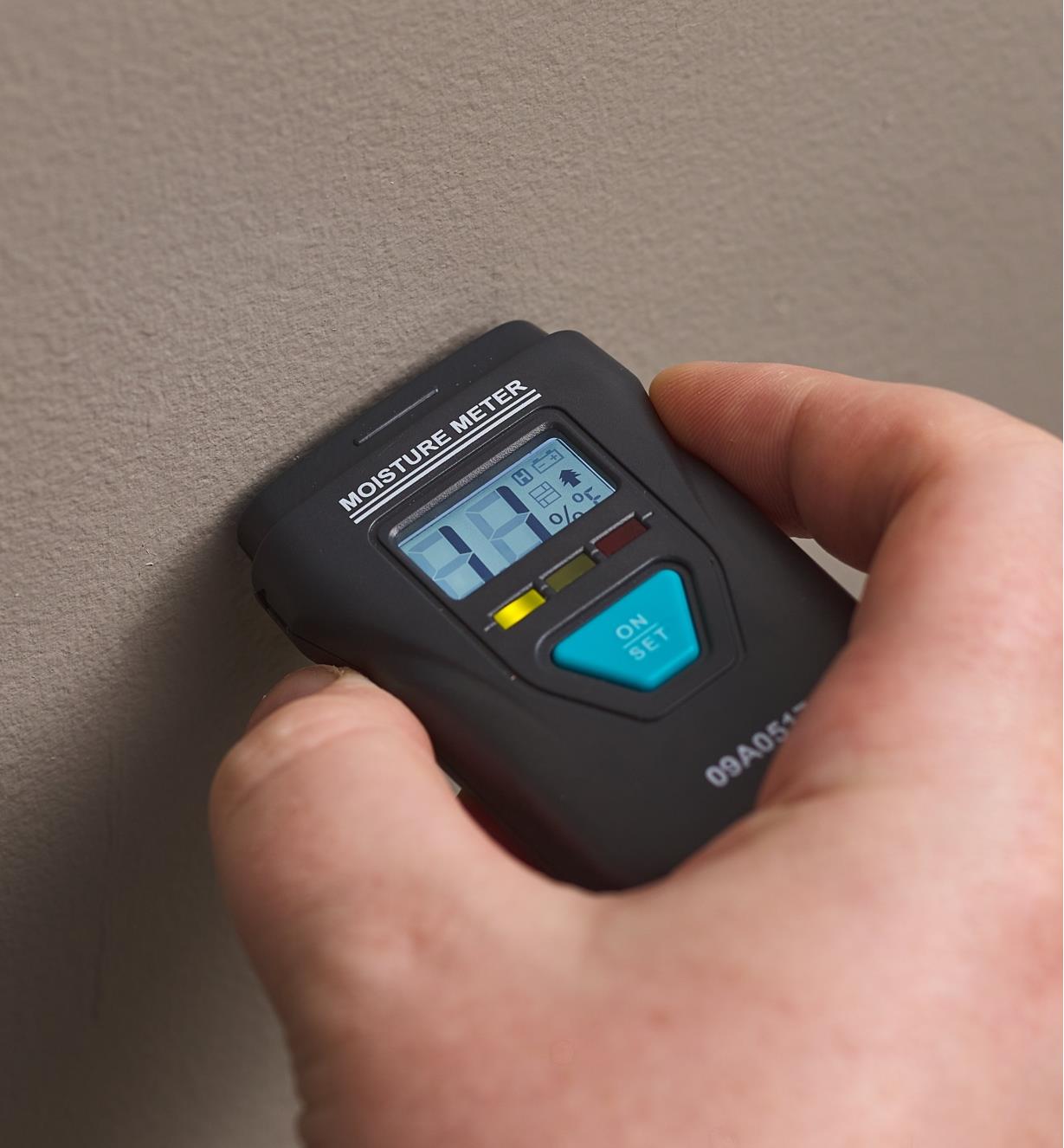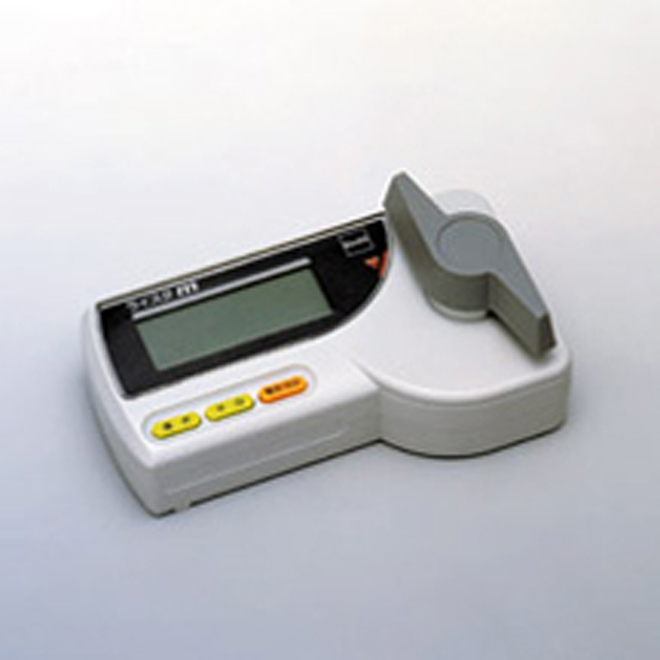Why Every Homeowner Needs a Moisture Meter: Key Advantages and Functions
Why Every Homeowner Needs a Moisture Meter: Key Advantages and Functions
Blog Article
The Ultimate Overview to Wetness Meters: A Comprehensive Overview and Just How They Can Save You Money
In the realm of building upkeep, building and construction, and different markets, the relevance of accurately gauging moisture levels can not be overstated. Moisture meters offer as indispensable devices in identifying and keeping track of moisture web content in products, assisting in preventing expensive problems and making certain the quality of items. Understanding the subtleties of various types of dampness meters, their applications, and the possible cost-saving advantages they offer can be a game-changer for specialists and businesses alike. Finding exactly how these devices can not only enhance processes however additionally contribute to monetary cost savings is a journey worth getting started on.
Sorts Of Moisture Meters
One common kind is the pin-type moisture meter, which gauges the electrical resistance between 2 pins inserted right into a product. Pinless wetness meters, on the other hand, usage electromagnetic sensor plates to check a larger area without causing damage to the product's surface area.

Infrared dampness meters gauge the thermal properties of a material to establish its moisture material non-invasively, making them useful for applications where pin or pinless meters may not be suitable. Recognizing the different kinds of dampness meters available can aid sectors choose the most proper tool for their certain dampness dimension demands.

Advantages of Utilizing Wetness Meters
Dampness meters provide invaluable benefits in properly monitoring and analyzing moisture degrees in varied products and settings (Moisture Meter). Among the main advantages of using moisture meters is the prevention of prospective damages created by excess moisture. By spotting and attending to high dampness degrees beforehand, moisture meters help to avoid mold growth, rot, and structural damage in buildings, saving both time and money on repair work. Additionally, dampness meters aid in guaranteeing the top quality of materials during building or manufacturing procedures. By properly gauging dampness material, these devices aid maintain the integrity of wood, drywall, concrete, and various other materials, lowering the threat of failings or problems.
Furthermore, utilizing moisture meters can lead to boosted energy effectiveness. In farming settings, dampness meters play an important duty in optimizing plant returns by allowing farmers to check soil moisture levels and make notified irrigation decisions.
Exactly How to Pick the Right Moisture Meter
Choosing the ideal moisture meter includes considering key elements such as product compatibility, measurement range, and calibration precision. When choosing a dampness meter, it's important to make certain that the meter is suitable for the certain product you will certainly be screening. Various products have differing electric buildings that can affect moisture readings, so choosing a meter made for your product is crucial for accurate results. Additionally, consider the measurement variety of the wetness meter. Make sure that the meter can identify dampness degrees within the range required for your applications. Calibration accuracy is one more crucial factor to remember. Go with a moisture meter with dependable calibration to guarantee regular and precise analyses. Some meters may require periodic calibration changes, so understanding the calibration process is necessary. By carefully reviewing these variables, you can pick a wetness meter that satisfies your requirements and offers accurate dampness dimensions for your projects.
Correct Methods for Moisture Meter Use

Cost Savings Through Moisture Meter Applications
Exactly how can the calculated use of wetness meters result in considerable expense savings across various industries? Dampness meters play a critical duty in price financial savings by preventing potential damages and guaranteeing quality assurance in different fields. In the farming market, wetness meters aid in figuring out the optimum time for collecting plants, stopping excess or over-drying moisture that can influence the last item's high quality. This precise surveillance helps farmers avoid unneeded losses and maximize their yield.
Similarly, in building and construction, moisture meters assist stop pricey damages by detecting wetness levels in structure products, such as wood or concrete, which can cause architectural issues if not resolved quickly. By determining trouble areas early, contractors can take restorative procedures to stay clear look at here now of considerable repairs or substitutes, inevitably saving money and time.
Moreover, in the food handling industry, moisture meters are necessary for checking item quality and guaranteeing compliance with security guidelines. By properly gauging dampness content in foodstuff, makers can stop useful reference perishing, preserve freshness, and minimize waste, resulting in significant cost savings. Generally, the calculated application of wetness meters is a valuable investment that can lead to considerable expense reductions and improved efficiency across various markets.
Final Thought
In final thought, moisture meters are useful tools for gauging and spotting moisture degrees in numerous materials. By utilizing the best moisture meter and complying with appropriate methods, users can successfully avoid expensive damages caused by excess moisture.
Moisture meters serve as crucial devices in identifying and keeping an eye on moisture content in materials, helping in avoiding expensive damages and ensuring the high quality of items. Infrared wetness meters measure the thermal buildings of a product to identify its wetness material non-invasively, making them useful for applications where pin or pinless meters may not be appropriate.Dampness meters supply very useful benefits in accurately examining and monitoring moisture levels in varied products and environments. In agricultural settings, dampness meters play an essential role in maximizing crop returns by enabling farmers to keep track of dirt moisture degrees and make informed irrigation decisions.In final thought, dampness meters are useful devices for determining and finding wetness degrees find out in numerous products.
Report this page